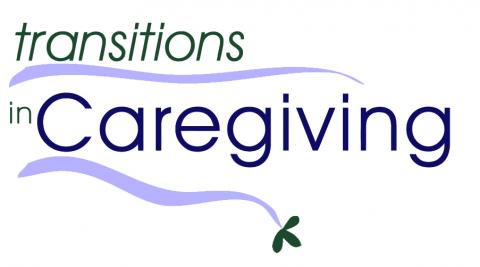
The Transitions in Caregiving project (formerly Nursing Home Diversion Modernization Grant) is transforming how services are being delivered to family caregivers in New Hampshire who are caring for older adults at risk of nursing home admission. Under this program, spending authority for Title III-E caregiver support funds has been devolved to the local level in two project pilot areas – Grafton County and Monadnock Region - through established ServiceLink Resource Centers. This project is funded by a grant from the U.S. Department of Health and Human Services, Administration on Aging. The project has shifted the locus of control from a primarily state-controlled, provider driven model to a caregiver-directed, locally-managed model that allows caregivers to determine their needs with support from local resources. Caregivers are offered a range of options for supportive services. These options include: Information and Referral Assessment One on one counseling Ad hoc phone counseling Flexible funding for respite care and other caregiver supports Caregiver support groups The evidence-based caregiver education program, Powerful Tools for Caregivers Depending on individual needs, caregivers may choose to receive any or all of these supportive services. A comprehensive caregiver assessment tool has been developed which is instrumental in assessing caregiver and care recipient well-being and needs for support. From this assessment, a plan of support is developed with the family caregiver in conjunction with the Caregiver Specialist at the local ServiceLink. Those individuals who are eligible for caregiver support funding have the opportunity to develop an individual budget for services with assistance from the Caregiver Specialist as needed. The Caregiver Specialist’s role is more of a coach or guide in this process, with the family caregiver ultimately choosing what services they want and how they want to utilize their allotted funds, similar to the “Cash and Counseling” model. A financial management service agency has been engaged to pay invoices and to serve as the “Employer of Record” of individuals the family caregiver chooses to hire as respite providers. The financial management agency conducts background checks, employee orientation, training, and payroll processing which relieves the family caregiver of taking on this additional responsibility yet preserves their control over choosing and managing their respite providers. Originally piloted at Grafton County and Monadnock Region ServiceLinks and working in collaboration with the Bureau of Elderly and Adult Services, State of NH and the University of NH Institute on Disability, this program has been expanded to include Belknap, Merrimack & Rockingham Counties through a second grant awarded by the Administration on Aging in October 2008. The goal of these two 18-month grants, funded by Administration on Aging, is to simplify the flow of funds to caregivers of older adults who are at risk of nursing home placement AND within 6-12 months of spend down to eligibility for Medicaid if they did enter a nursing home. ServiceLink Resource Center staffs have completed professional training, including becoming class leaders for the Powerful Tools for Caregivers educational program and the Methods, Models, and Tools course offered by UNH. Several Powerful Tools for Caregivers trainings have been conducted in the pilot communities, with more planned in the near future. Additionally, training is offered to the ServiceLink staff on facilitating person centered planning through the University of New Hampshire giving the staff a variety of new tools in working with family caregivers. The financial management services are provided by Gateways Community Services (formerly Area Agency of Greater Nashua). They have been acting as an ‘agency with choice’ with the capacity to provide accounts payable for goods and services and employer agent/payroll services. A user-friendly manual on the fiscal process for participants is currently being developed. The Transitions in Caregiving pilot has served 137 family caregivers. The caregivers served by this program are primarily female (70%), while 52% of the care recipients are female. The average age of the caregivers is 66, with a range from 25 to 91. The average age of the care recipients is 84 with a range from 66 to 100. The relationship of caregiver to care recipient is primarily spouse (52%), followed by parent (36%), and grandparent and parent-in-law (both at 6%). Eighty-five percent of caregivers in this program live with the care recipient and 34% report that they have no one to provide respite care. Caregivers report that they provide 3 to 24 hours of support with 76% reporting that they provide 12 to 24 hours of support. The Transitions in Caregiving Program is innovative because it is a consumer-directed program that shifts responsibility for assessment, eligibility determination, and resource allocation for the caregiver support program from the state level to the local level. It establishes a single point of entry for accessing services for both caregivers and those for whom they are caring and empowers caregivers to identify and manage their support needs.
Melissa Mandrell
Project Director